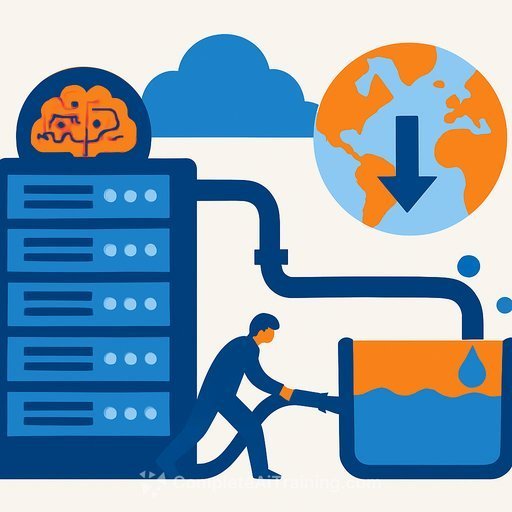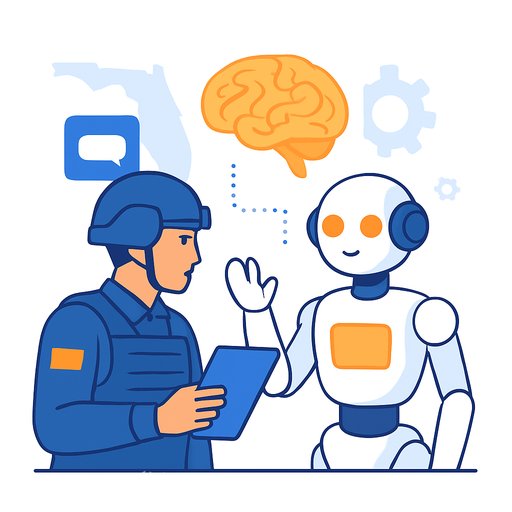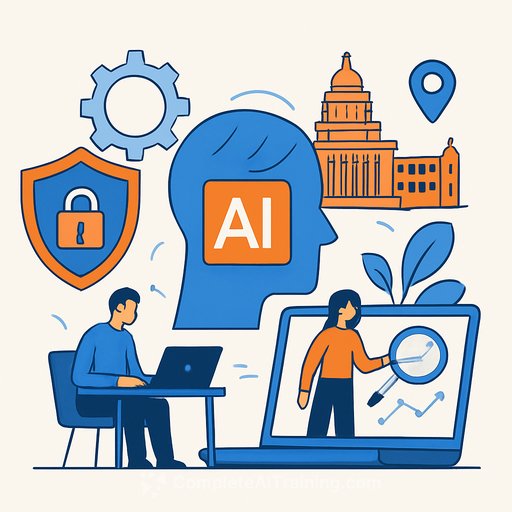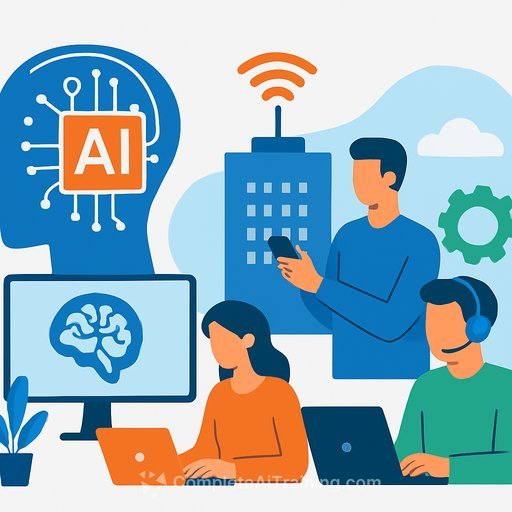Leading the AI-Driven Future in Operations
Date: August 10, 2025 | 7:50 pm
Artificial intelligence (AI) is no longer just a buzzword for businesses. For operations professionals, integrating AI technologies into everyday workflows is becoming essential to stay competitive and efficient. This requires more than simply automating tasks—it demands rethinking business processes to foster agility and continuous innovation.
Transforming Operations with AI
Organizations that embrace AI can create intelligent operations that adapt and improve over time. This means redesigning processes to incorporate AI tools effectively and encouraging teams to experiment with new approaches. The result is a stronger, more responsive business that can meet evolving customer and market demands.
Seeing the Future: Combining Technologies
The biggest changes come from combining traditional AI, generative AI (GenAI), and emerging technologies like mobile apps, IoT, and blockchain. Together, these create new opportunities across industries such as agriculture, retail, and business process outsourcing (BPO).
- In agriculture, AI supports precision farming by analyzing data from IoT devices to boost crop yields.
- Retailers use AI-driven analytics to understand customers better, offering personalized marketing and improving inventory management.
- In BPO, AI streamlines workflows and enhances customer service through intelligent automation.
Planning from a future perspective helps operations leaders develop the right skills and strategies to adapt and thrive in this changing environment.
Building a Strong Data Foundation
AI depends on quality data. Operations teams must focus on creating data systems that efficiently collect, store, and manage information. A scalable infrastructure supports the increasing volume of data and ensures smooth integration across various systems and AI tools. This foundation is critical to accelerating AI adoption across departments and improving collaboration.
Closing Talent and Technology Gaps
Skilled AI professionals are in high demand. Many employees want more training to build AI expertise, but current programs often fall short. Investing in ongoing training and upskilling equips teams to handle AI tools confidently and drives faster adoption.
On the technology side, organizations face decisions about whether to buy ready-made AI solutions, build custom applications, or blend both approaches. While some hesitate to invest heavily in generative AI, custom tools designed to address specific challenges can deliver strong returns.
According to recent surveys, nearly all senior leaders in the US are investing in AI. A balanced strategy helps capture the benefits of off-the-shelf products while developing unique capabilities suited to business needs.
Leveraging Agentic AI for Smarter Operations
Agentic AI takes automation further by acting independently to make decisions and interact with systems and users. Powered by large language models, it plans dynamically to meet goals rather than just following fixed instructions.
For example, an agentic AI system in retail can optimize inventory in real-time based on customer demand and supply data, improving satisfaction and operational efficiency. As these intelligent agents gain more autonomy, they will increasingly collaborate with human teams, becoming central to business operations.
Encouraging a culture open to experimentation helps operations teams adopt these new capabilities and stay ahead.
Driving Continuous Growth with AI
Organizations that reach strategic AI maturity become more agile and innovative. They can respond quickly to market shifts, enhance processes continuously, and sustain growth over time. For operations professionals, this means focusing on flexible systems and ongoing learning to keep improving performance.
For those interested in developing AI skills relevant to operations, exploring targeted courses and training can make a significant difference. Platforms like Complete AI Training offer tailored programs to build practical expertise.
Note: This article is for informational purposes and does not substitute professional advice. The views expressed here reflect general insights on AI in operations.
Your membership also unlocks:






